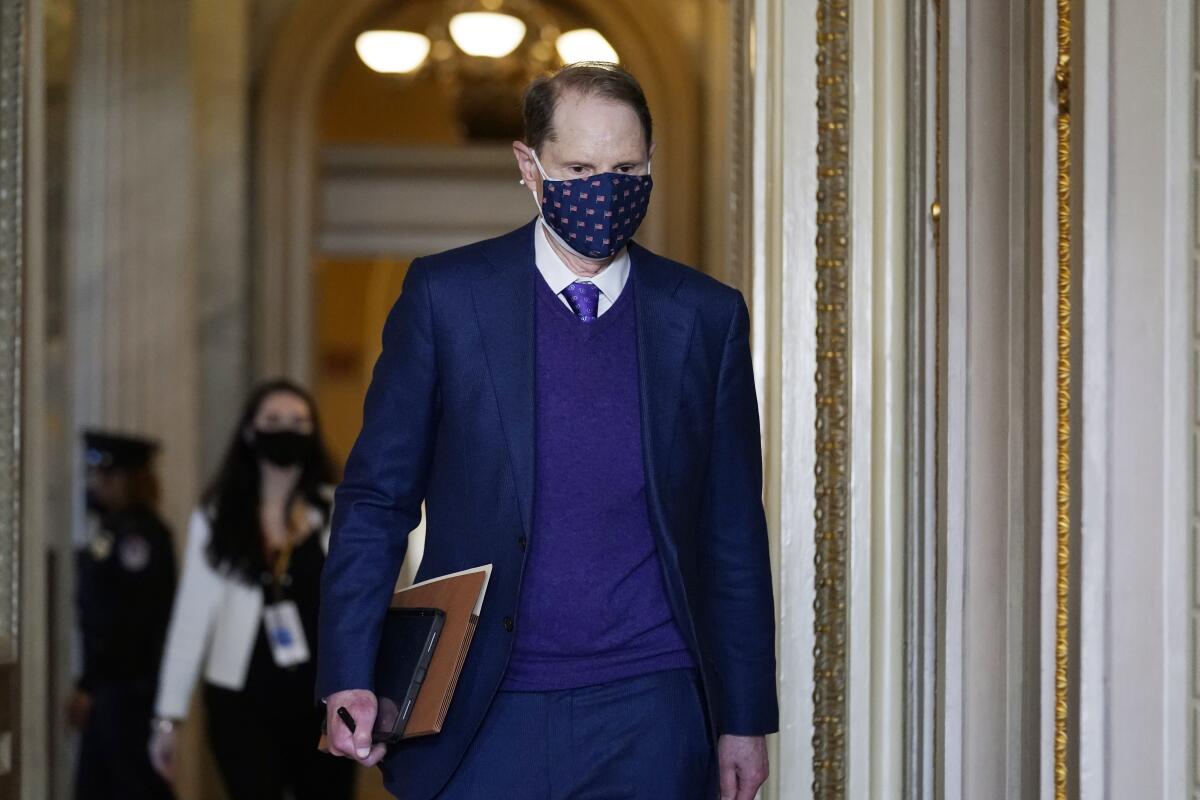Editorial: Clamp down on FBI’s backdoor surveillance of Americans

- Share via
For the second time in two years, a federal judge has faulted the FBI for improperly searching for information about Americans amid the emails, texts and other communications collected by a foreign intelligence surveillance program, even as he reauthorized the program. If the FBI continues to flout privacy protections, Congress must act.
In an opinion from November made public last week, James E. Boasberg, the presiding judge of the Foreign Intelligence Surveillance Court, found that FBI personnel on several occasions had violated the rules for searching communications collected under Section 702 of the Foreign Intelligence Surveillance Act.
That law allows the National Security Agency to scoop up, without a warrant, electronic communications of foreigners located outside the United States. The law prohibits the targeting of Americans; but because foreign targets may be in contact with Americans, sensitive personal information about people in this country can be amassed in the vast Section 702 database and sometimes searched.
Because such “backdoor” searches raise serious 4th Amendment concerns, the FBI is limited in its ability to “query” the database. (To actually read the contents of such communications for use in an existing or “predicated” criminal investigation not related to national security, the FBI must obtain a court order.)
Yet Boasberg found “apparent widespread violations of the querying standard.” Nevertheless, he extended the program for another year, noting that the violations occurred before the bureau had instituted changes in its querying system and before personnel were fully retrained.
It’s hard to know precisely how often information about Americans gathered as part of foreign-intelligence collection leads to criminal prosecutions. But even if such incidents are rare, they represent an unacceptable use of information obtained without a warrant. And even when no criminal prosecution results, the fact that Americans’ texts and emails can be warehoused by the government and accessed by investigators requires that law enforcement personnel fastidiously adhere to privacy protections.
In 2018 when Congress extended Section 702 for another six years, it included some modest protections for privacy. If the FBI can’t be trusted to follow the rules, Congress should impose even tougher restraints.
Sen. Ron Wyden (D-Ore.), who sought stronger privacy protections before the last reauthorization, reacted to the violations detailed by Boasberg by saying: “This must change. ANY search of Americans’ communications under 702 needs a warrant.”
It’s possible to imagine emergencies in which the FBI might want to search for information about an American using data collected under Section 702. Current law allows the FBI to read the contents of some communications involving Americans without a court order if the information could help avert a serious threat of harm. A similar exception could be made to a prohibition on searching the database.
But, as a general rule, the FBI must not search this trove of personal information about Americans without a warrant. Collecting foreign intelligence to keep American safe cannot come at the expense of Americans’ constitutional rights.
More to Read
A cure for the common opinion
Get thought-provoking perspectives with our weekly newsletter.
You may occasionally receive promotional content from the Los Angeles Times.










